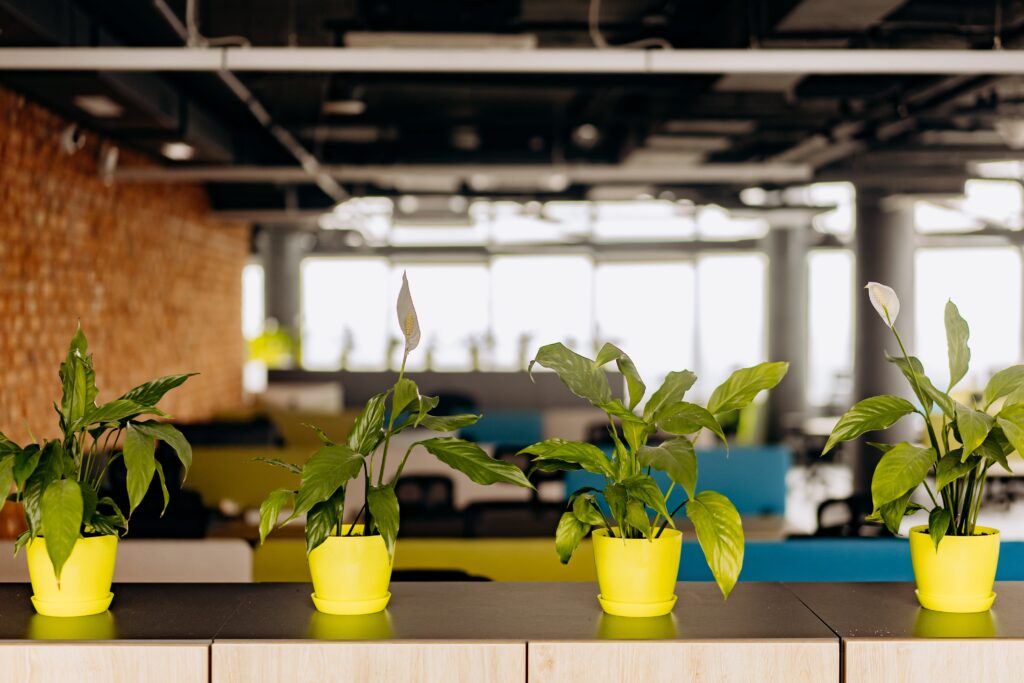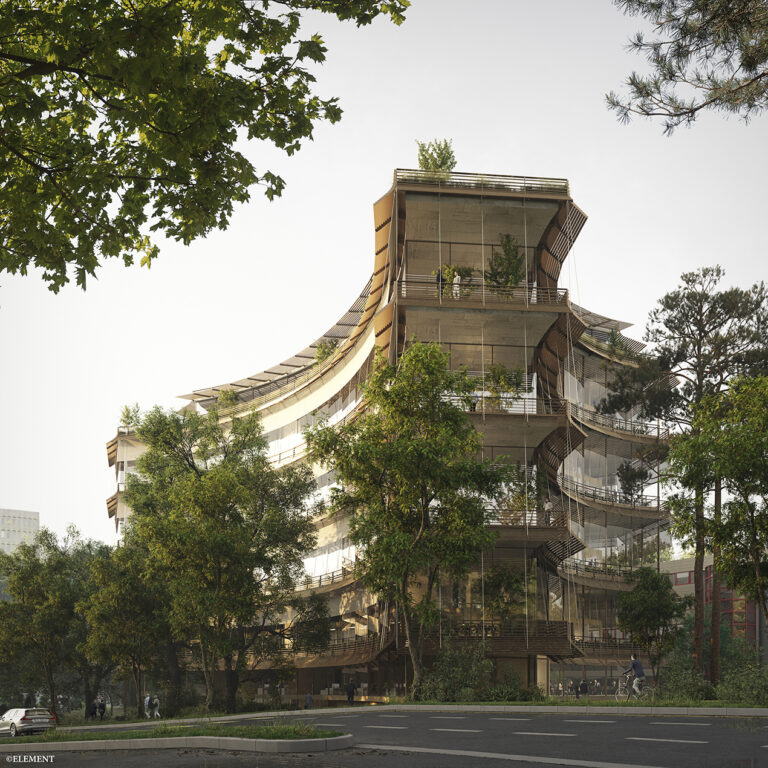
Biophilic design (from the Greek, ‘philia’ meaning ‘love of life’) is an environmental design choice which is being adopted by architects and decorators around the world for modern office spaces and desk-based work environments.
Office spaces, though largely safe and unassuming compared to workplaces of past centuries still provide potential health hazards – the most common are a lack of sufficient air quality/ventilation and mental stress which often comes from a desk-based job where one looks at a glaring screen for several hours at a time.
Emphasising our connection to the natural world, properly integrated biophilic design presents a solution to both of these issues, allowing employers and employees to benefit from the unique regenerative energy only flora and fauna can provide – integrating natural elements and colours which are calming to the mind and aesthetically pleasing to look at, making office blocks less imposing.
While some buildings are sited to offer views of nature, the majority of buildings and workplaces are situated in enclosed urban environments, with locations often determined by economic factors such as access to labour, public transit, and cheaper operating costs rather than factors such as the physical health or mental fortitude of a business’s workforce. Biophilic designs offer a humane, environmentally friendly, and cost-effective solution to issues presented in urban office spaces and are a consideration that our team emphasises to clients when providing accessibility audits because it provides benefits to both disabled people and non-disabled people alike, naturally reducing stress, blood pressure levels, and heart rates while increasing productivity, creativity, and an overall sense of well-being.
When it comes to accessibility, biophilic design choices can make a physical environment much more attractive to different types of disabled people, including those with neurodivergent conditions such as anxiety, autism, and ADHD. For people with anxiety, for instance, studies have discovered that the emphasis on the natural supports physiological restoration and can therefore help with mood and self-esteem. For people who are autistic, the biophilic design provides pleasant stimuli not only visually but also touch and smell, allowing office spaces to provide a few of the benefits that would normally require an entire sensory room.
As well as championing the benefits of biophilic elements in report-based audits, Direct Access has collaborated with different architects on new-build projects that have incorporated biophilic design choices, guiding on integration and advising on the benefits of accessibility, sustainability, and wellness.
Current projects include the upcoming United Nations International Organization for Migration in Geneva, a 600-desk office complex, and a conference facility with various other elements such as receptions, meeting rooms, car parks, and open-plan spaces.
Additionally, the work we did with the Piano Factory Purpose Built Student Accommodation in the UK emphasizes creating external landscaped green spaces to serve as privately accessed external wellness and circulation spaces to serve the students living in the accommodation.
A similar approach is adopted in our work with Staffordshire University, where their new student hub and accommodation area is built in a green space, landscaped for accessibility with minimised vehicular access.
Our work with the National Trust at Attingham and the Shugborough Estate also includes biophilic design and integration of landscape and natural features in materials and design.
Unsure how and where to integrate biophilic design elements in your workspace? Direct Access can provide your organisation with an accessibility audit to determine what elements can be included to best provide current and future employees with an environment that best serves their physical and mental health and increase productivity and workplace success as a result. Check out our Access Consultancy options here.
